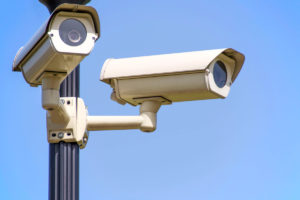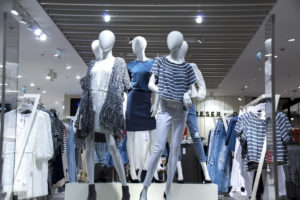 Loss Prevention Officers and Managers catch shoplifters and dishonest employees. That is a common perception and in some stores it may be a true picture of what Loss Prevention departments do, with the additional caveat that they may have uniformed people who conduct receipt checks. If this is all that the department does it can be hard to sell store managers on the value of having them on staff if the budget for them comes directly from the store. It is even more difficult for small, independent retailers to justify hiring a Loss Prevention Officer although if the store is in a high crime area they may contract a security guard. There was a time when there was an “us versus them” mindset between store managers and Loss Prevention teams. Over time some larger companies have focused their Loss Prevention teams more on operational issues. For example, I worked for a company that had Loss Prevention conduct food product out of date audits. Their position was that this was a safety issue so it fell to the Loss Prevention team. I had no problem doing the audits, but as I looked at the amount of out of date items I was finding I had to question what the freight team was doing when they were stocking. Who was auditing their work because there were a lot of FIFO (First In First Out) issues I was identifying that were causing out of date problems.
Loss Prevention Officers and Managers catch shoplifters and dishonest employees. That is a common perception and in some stores it may be a true picture of what Loss Prevention departments do, with the additional caveat that they may have uniformed people who conduct receipt checks. If this is all that the department does it can be hard to sell store managers on the value of having them on staff if the budget for them comes directly from the store. It is even more difficult for small, independent retailers to justify hiring a Loss Prevention Officer although if the store is in a high crime area they may contract a security guard. There was a time when there was an “us versus them” mindset between store managers and Loss Prevention teams. Over time some larger companies have focused their Loss Prevention teams more on operational issues. For example, I worked for a company that had Loss Prevention conduct food product out of date audits. Their position was that this was a safety issue so it fell to the Loss Prevention team. I had no problem doing the audits, but as I looked at the amount of out of date items I was finding I had to question what the freight team was doing when they were stocking. Who was auditing their work because there were a lot of FIFO (First In First Out) issues I was identifying that were causing out of date problems.
The solution is for a partnership where Loss Prevention can help store managers and owners improve sales and operations and store management provides administrative support for L.P. What is it that Loss Prevention can offer a store in addition to improved profitability by stopping employee theft or preventing shoplifting? As a Loss Prevention Manager I assisted the store managers in conducting prospective employee interviews. I was already interviewing my own applicants when I had job openings so helping the store fill their positions was not a big deal. L.P. can audit out of stock spaces on shelves. Certainly the focus of the L.P. Officer is on empty shelf space due to theft but if it is determined that merchandise is not being pushed properly by a stocking team then that information can be shared with management. The impact of not properly stocking merchandise results in missed sales and negatively affects profits.
Loss Prevention departments can also support stores by applying electronic article surveillance anti-theft devices to merchandise. I have personally spent significant amounts of my time placing Checkpoint tags on CD’s, DVD’s, and electronics merchandise. I have also placed security tags on clothes, thwarting would-be shoplifters and keeping shortage down. You may be thinking that this should be a Loss Prevention job anyway but that isn’t necessarily the case. There are stores where tagging is left to a freight unload team or even delegated taggers. It saves the store money in these situations when L.P. jumps in and assists in tagging allowing the hours saved to be put to use somewhere else.
Is it important to maintain some delineation between L.P. and stores? I believe there should be some dividing line and it may not always be clear. I have seen some managers give direction to L.P. Officers which began to interfere with their primary responsibility of catching shoplifters. I have also seen department managers start entering the Loss Prevention office when no one from L.P. was present and move cameras to watch their cashiers or employees to see if they were being productive. This potentially causes issues with ongoing investigations when cameras are not where they are expected to be. A partnership between L.P. and stores requires a mutual respect for areas of responsibility. Likewise I have seen instances of L.P. Managers telling store employees were not doing a job properly rather than acting in partnership and mentioning an observation to the department manager.
In a partnership, store managers may provide a store employee as a witness for L.P. when a shoplifting suspect is in the office. They may also provide a witness for a L.P. Manager when they are going to conduct a dishonest employee interview. Managers may also offer to purchase additional security equipment such as cameras when L.P. teams have been strong partners and have helped to keep merchandise on the floor and prevented shoplifting.
There are many ways that stores and L.P. can be partners in making a store profitable. All it takes is thinking outside the box and building a relationship based on respect. Strong partners make a winning combination.
 Police hear it all the time when issuing tickets, “Need to make your quota for the month?” Usually it is a false question with a false premise that has been perpetuated over time. While there may be some police departments that set quotas they are the exception rather than the rule. Loss Prevention departments go through similar problems. Some people think that Loss Prevention staffs are out to rack up numbers any way they can get them. Most L.P. professionals are simply trying to catch shoplifters who are stealing and they want to apprehend dishonest employees to stop theft, prevent shrinkage and it can serve as a notice to other employees that theft won’t be tolerated. For some L.P. personnel there is a perceived pressure to “get more shoplifters” and in other cases it is real. For the retailer that is not able to pay for a Loss Prevention Staff, their concern is simply to drive the bad guys somewhere else and get rid of a crooked employee before they cause too much damage. Sometimes this is done using electronic article surveillance equipment from a company like Checkpoint Systems. They don’t feel the same pressure to “apprehend” but there is a sense of urgency in minimizing theft opportunities (how to do that becomes another matter).
Police hear it all the time when issuing tickets, “Need to make your quota for the month?” Usually it is a false question with a false premise that has been perpetuated over time. While there may be some police departments that set quotas they are the exception rather than the rule. Loss Prevention departments go through similar problems. Some people think that Loss Prevention staffs are out to rack up numbers any way they can get them. Most L.P. professionals are simply trying to catch shoplifters who are stealing and they want to apprehend dishonest employees to stop theft, prevent shrinkage and it can serve as a notice to other employees that theft won’t be tolerated. For some L.P. personnel there is a perceived pressure to “get more shoplifters” and in other cases it is real. For the retailer that is not able to pay for a Loss Prevention Staff, their concern is simply to drive the bad guys somewhere else and get rid of a crooked employee before they cause too much damage. Sometimes this is done using electronic article surveillance equipment from a company like Checkpoint Systems. They don’t feel the same pressure to “apprehend” but there is a sense of urgency in minimizing theft opportunities (how to do that becomes another matter). As a retail business, shoplifting, employee theft and lawsuits come hand in hand.
As a retail business, shoplifting, employee theft and lawsuits come hand in hand. If you believe that you can outsell your cash or inventory losses due to theft, you probably won’t be in business for long. Or if you do survive, you are no way living up to the margins you deserve. In my 35+ years of loss prevention particularly helping medium to small retailers, I have heard this more times than I can believe.
If you believe that you can outsell your cash or inventory losses due to theft, you probably won’t be in business for long. Or if you do survive, you are no way living up to the margins you deserve. In my 35+ years of loss prevention particularly helping medium to small retailers, I have heard this more times than I can believe.  How many of you have done IT? You know the IT I’m talking about. You looked at an application, interviewed the candidate, had a bit of an unsettled feeling about him or her but hired them anyway. IT may be a few days, a few weeks or a few months later but IT becomes a reality, buyer’s remorse. You hired someone who turns out to be a dud. It may be they are calling out of work on a regular basis or perhaps they aren’t following directions on tasks you are assigning them. It may be that you think they are stealing money or merchandise from you. Whatever the problem you just wish you hadn’t hired this person. It is frustrating to make those types of employment decisions, but don’t feel like your small retail store is all alone because you have to make these hiring choices yourself. It even happens to big companies that have Human Resources departments dedicated to trying to hire and retain the best employees.
How many of you have done IT? You know the IT I’m talking about. You looked at an application, interviewed the candidate, had a bit of an unsettled feeling about him or her but hired them anyway. IT may be a few days, a few weeks or a few months later but IT becomes a reality, buyer’s remorse. You hired someone who turns out to be a dud. It may be they are calling out of work on a regular basis or perhaps they aren’t following directions on tasks you are assigning them. It may be that you think they are stealing money or merchandise from you. Whatever the problem you just wish you hadn’t hired this person. It is frustrating to make those types of employment decisions, but don’t feel like your small retail store is all alone because you have to make these hiring choices yourself. It even happens to big companies that have Human Resources departments dedicated to trying to hire and retain the best employees. I remember the days when I needed to fill a position on my Loss Prevention Tea
I remember the days when I needed to fill a position on my Loss Prevention Tea
 Shortage control and theft prevention for small retailers which have no Loss Prevention Associates in the store was the topic of a recent article in an online loss prevention magazine. The points were well made and much of it was directed at stores that may have district or regional Loss Prevention Managers. But the truth is there are many small, independent retailers with no affiliation to a larger company. How do these stores cope with reducing shrink and preventing theft? It could be a tough problem but Loss Prevention Systems Inc. (LPSI)has the solutions that can keep small stores keep shortage down and profits up.
Shortage control and theft prevention for small retailers which have no Loss Prevention Associates in the store was the topic of a recent article in an online loss prevention magazine. The points were well made and much of it was directed at stores that may have district or regional Loss Prevention Managers. But the truth is there are many small, independent retailers with no affiliation to a larger company. How do these stores cope with reducing shrink and preventing theft? It could be a tough problem but Loss Prevention Systems Inc. (LPSI)has the solutions that can keep small stores keep shortage down and profits up. Preventing shoplifting is by far one of the major problem for big retailers. For the small retail store, shoplifting takes on a different meaning.
Preventing shoplifting is by far one of the major problem for big retailers. For the small retail store, shoplifting takes on a different meaning. Daylight savings time is over and for most of us in the U.S. (yes, there are a few exceptions) we have moved our clocks and groaned at the loss of a precious hour of sleep. We have to adjust and get used to the change and eventually we do. For our personal lives there isn’t a lot of impact, once we are used to it we do benefit from the additional daylight and get to enjoy more outdoor activity. The time change is useful as a reminder for changing batteries in smoke detectors. You may even use it as a point when you will start planning your summer vacations. For business owners daylight savings time can be a reminder that it is time to conduct a store physical security review. Time changes may not impact us much individually but for retailers there is an impact for the building, employees and your customers.
Daylight savings time is over and for most of us in the U.S. (yes, there are a few exceptions) we have moved our clocks and groaned at the loss of a precious hour of sleep. We have to adjust and get used to the change and eventually we do. For our personal lives there isn’t a lot of impact, once we are used to it we do benefit from the additional daylight and get to enjoy more outdoor activity. The time change is useful as a reminder for changing batteries in smoke detectors. You may even use it as a point when you will start planning your summer vacations. For business owners daylight savings time can be a reminder that it is time to conduct a store physical security review. Time changes may not impact us much individually but for retailers there is an impact for the building, employees and your customers.